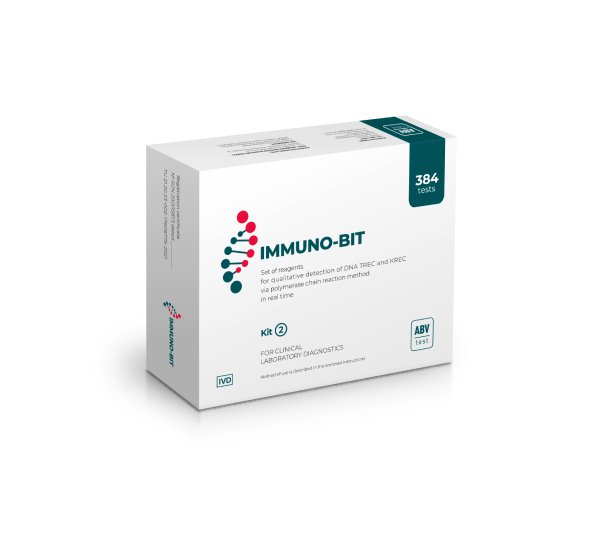
IMMUNO-BIT®
The test is based on the quantitative determination of TREC and KREC DNA - markers of maturity and differentiation of T- and B-lymphocytes in whole blood or in dried blood spots using RT-PCR.
This makes it possible to assess the state of the immune system and identify patients with immunodeficiency conditions.
Primary immunodeficiency states (PIDS) are a heterogeneous group of disorders caused by defects in various parts of the immune system, which clinically most often manifest themselves in the form of recurrent infectious and autoimmune diseases of varying severity, as well as malignant neoplasms. According to general estimates, at least 1–2% of the world's population suffer from immunodeficiencies.
The method for assessing the DNA concentration of TREC and KREC has become the “gold standard” in neonatal screening for PIDs in the world, which has ensured the highest level (more than 94%, USA) of survival of newborns with T- and B-cell immune defects. Since 2023, screening for PIDs has been included in the Federal neonatal screening program in the Russian Federation.
The IMMUNO-BIT kit is used as an auxiliary tool for diagnosing pathological conditions caused by a lack of T- and B-cells in all groups of the child population, without gradation based on demographic or population characteristics. In 2021–2022, screening programs for primary immunodeficiencies among risk groups were launched in several regions of the Russian Federation. Pilot screening programs have shown that among children at risk, such as premature infants, children in intensive care units, children with persistent and recurrent bacterial infections, the incidence of immunodeficiency conditions is significantly higher than in the population.
The use of IMMUNO-BIT in routine practice will reduce the time for diagnosing immunodeficiency states, identify risk groups of patients with immunocompromised patients, and ensure timely initiation of therapy.
